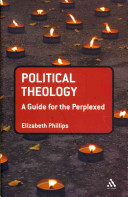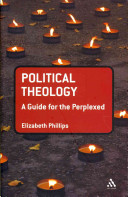
Many people have an immediate, visceral response to the word ‘ecumenical’. For some, it is a byword for the unity and cooperation which is most needed, necessary, and important for the church today. For others, it is a byword for a tired project which is showing its age along with those who entered into it with fervor in the 1960s and 1970s, and are still clinging to it along with outmoded theologies and expectations of unity. For the first kind of person, teaching political theology in an ecumenical context may be looked upon as a welcomed opportunity and important responsibility, while the second sort of person may shudder at the idea of the sort of bland, common-denominator teaching which can be found in some ecumenical contexts. How can the teaching of political theology in ecumenical contexts avoid this blandness while also not being too optimistic about ecumenical political theology?

We have all been around people who constantly tell stories in which the person telling the story is also the clear hero of the story. And none of us wants to be that person. I think this should be the case not only in the sharing of personal anecdotes, but in the stories we tell one another professionally about our professional lives, so it would be disingenuous to write a series on teaching political theology which leaves readers with the impression that I have it all figured out (or think that I do!). This month I want to share a story about a particularly persistent problem in teaching political theology – one to which I will not suggest I have the answer.

Some challenges and opportunities are the same on either side of the pond for those of us teaching political theology. Those teaching in seminaries and other ‘confessional’ contexts will find the same resistance to ‘politicizing’ faith from conservative students and the same blasé assumptions from liberal students who obviously already have this all sorted because they are good liberals, both theologically and politically (more on these challenges in Part 3, next month). Those teaching in liberal arts universities will share similar struggles with how (or if) the discipline can be normative or formative in these contexts. And we will all share the wonderful opportunities involved in drawing students beyond their inherited binary views of the theological and the political. In other ways, the challenges and opportunities differ considerably on either side of the pond….

I am an American who lives and teaches political theology in the United Kingdom, and for the next few months I will be reflecting on the experiences, pitfalls, and opportunities in teaching political theology. This month I begin with a summary of the book which I recently published as an aide to teaching political theology, and this will be followed in the coming months with reflections on teaching political theology in the US and the UK, teaching political theology to conservative and liberal students, and teaching political theology ecumenically….